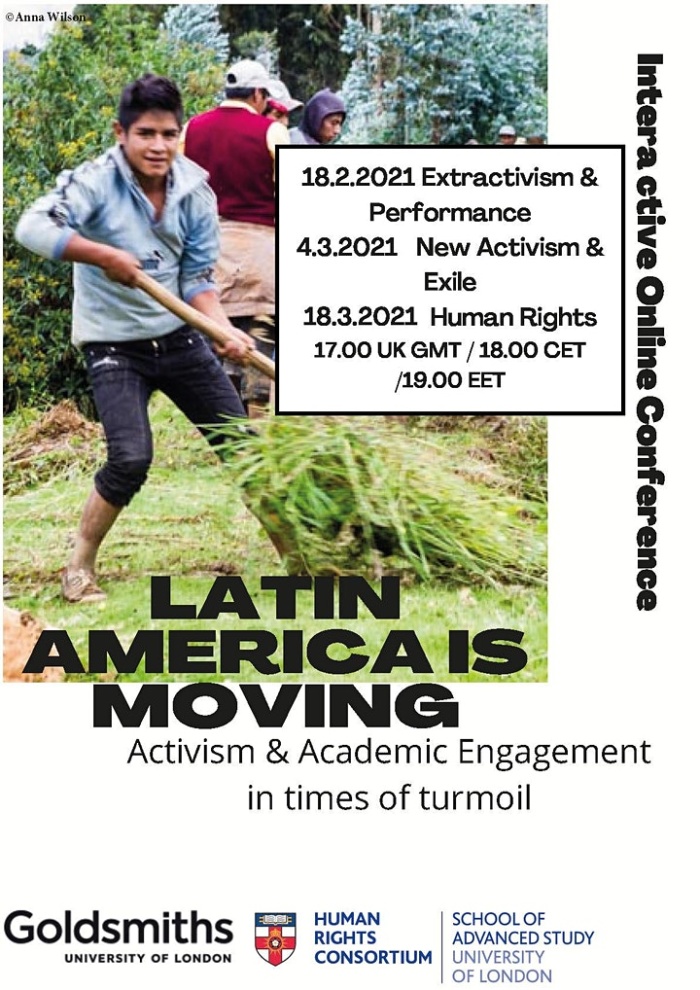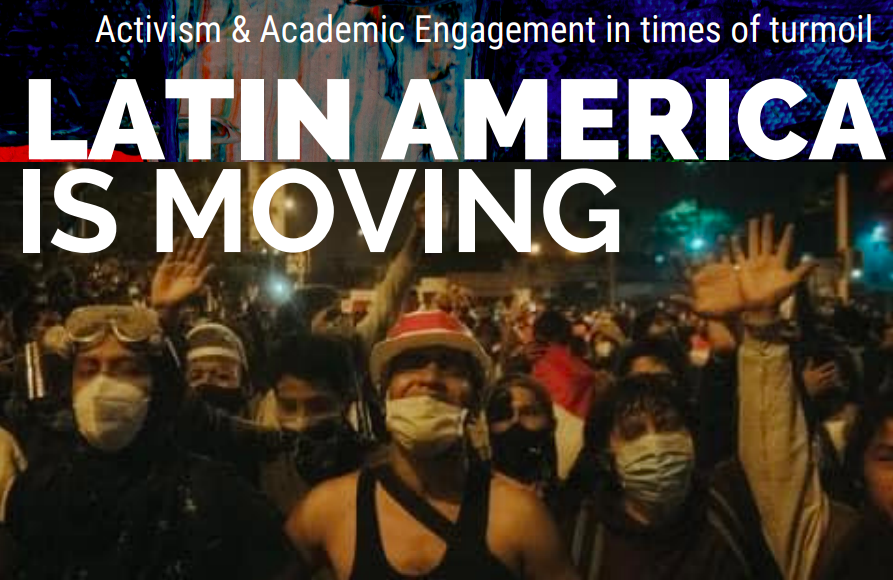Latin America is Moving Collective are holding a new online seminar series, open to all, exploring the many-worlds constructed by Latin American activists at a time of heightened dispossession. To whet your appetite, we take a look at what’s to come in the first seminar
As a way to explore Latin American social movements before and after the pandemic, the Latin America is Moving Collective have launched a new online seminar series. Each of the three seminars will bring together ‘flash talks’ from experts and break-out discussion sessions with the audience. Attendees will be engaged to think about the difficult questions raised by research, on one hand, and activists and collectives’ demands, on the other. For LAB, this initiative is a continuation of our Voices of Latin America work.
The first of three seminars will take place this Thursday, February 18, and will explore activism against extractive industries, and performance activism, with presentations from five speakers – including three LAB members.
Introducing and chairing the conference is Paula Serafini (CAMEo Research Institute, University of Leicester), herself the author of the book Performance Action: the Politics of Art Activism.
Tom Gatehouse, author of Voices of Latin America: Social Movements and the New Activism and the upcoming The Heart of Our Earth: Community Resistance to Mining in Latin America, will then present ‘Latin America at breaking point: a look back at two tumultuous years’
Tom will introduce Latin America Bureau to the collective’s audience of academics, students, researchers, journalists and human rights advocates in Europe and Latin America. He’ll summarise some of what’s changed since Voices was published at the beginning of 2019 (even before the pandemic, 2019 saw protest movements rising all over the continent) and will introduce his own research on mining and extractivism.
Continuing in this line, Sue Branford will answer the million-dollar question, ‘Is sustainable mining possible?’, by contrasting two bauxite mines she visited in the Brazilian Amazon back in Jan/Feb 2020 alongside Brazilian journalist, Thaís Borges. One of these was set up during Brazil’s repressive military dictatorship in the 1970s and the other in the early 2000s, when Brazil had returned to democratic government and left-of-centre governments were in power at the federal, state and municipal levels.
Sue’s talk will address the impact of large-scale mining on local communities of ribeirinhos – families whose livelihoods depend on fishing, hunting, small-scale agriculture and collecting forest products – and will ask whether the real change in political climate in Brazil has made it easier for the ribeirinho communities to get their rights respected.
The Performance Activism section will see Camila Gonzales Ortiz, lecturer and theatre director (University of Reading) discuss how anger is performed within the powerful protest performance piece ‘A Rapist in Your Path’ from Chilean collective Las Tesis, which ignited feminists across the world in 2019-2020.
LAB’s Louise Morris will continue to explore protest performance in conversation with Costa Rican hip hop artist Nakury, talking about the power of hip hop in protests, somatic solidarity, empowerment through the culture of hip hop and how we can effectively harness music in social movements.
Join us for the event this Thursday 18 February, 2021. More details and ticket registration (free) can be found here.
Latin America is Moving Collective is a horizontal and a loose network supporting political movements that work around social and ecological justice in Latin America.


